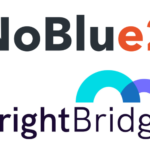At the end of the Brexit transition period, which is due to expire at 11:00pm GMT on 31 December 2020, the UK will leave the EU VAT regime. This means that, in less than three months, and regardless of whether or not the UK can agree a free trade agreement with the EU, there will be changes that will affect your company’s VAT accounting systems.
Here are some of the implications that UK companies will have to consider before the changes come into effect.
VAT Rates
The UK originally introduced VAT as it was one of the conditions of joining the European Economic Community (EEC) in 1973. All EU member states have always been able to set their own VAT rates and thresholds. But next year, the UK will no longer be subject to the EU VAT Directive – so, it will no longer have to maintain a minimum standard VAT rate of 15%.
It could even abolish VAT altogether – last year, this was mooted by Michael Gove. But the guidance has since indicated that VAT will persist in the UK, especially as it is seen as vital for funding public services and is the second highest tax revenue stream for the UK government (personal taxes being the highest). Although we have seen temporary measures put in place in the hospitality sector as a response to the Covid-19 pandemic, it is unlikely that anything will change in the short term (. But theoretically, the rates could be reduced or raised or even standardised across the board. New items could become exempt or new rates of VAT could be introduced.
After 1 January 2021 there will be some changes to terminology and VAT accounting. Goods leaving the UK but destined for the EU will become exports (currently termed dispatches) and goods arriving into the UK originating from the EU will become imports (currently termed acquisitions).
Goods Arriving into the UK (Business to Business)
Currently, VAT is (ordinarily) charged at 0% by suppliers of goods to customers that are located in a different EU member state. In practice, what this means is that the customer – for example, a UK company – receives an invoice from its supplier with 0% VAT on it. Under EU VAT rules, the customer must then account for acquisition VAT (i.e. effectively charge itself VAT) via an accounting transaction on its VAT return.
For imports arriving into the UK from a supplier located outside of the EU, import VAT is payable by the importer (usually, the ‘importer of record’) and this VAT is payable at the border (or drawn down from a duty deferment account). After 1 January 2021, this will change. ‘Postponed import VAT accounting’ will be introduced, which has a similar – but different – VAT accounting regime to acquisition VAT accounting. This is likely to be good news from a VAT perspective for most businesses as import VAT is payable on the same VAT return upon which it can be reclaimed. However, this will require system changes to ensure proper import VAT accounting and careful consideration should be made to ‘cut-off’ procedures, i.e. goods arriving near the 1 January 2021 transition period expiry date.
Goods leaving the UK (Business to Business)
Assuming no special trade deal or conditions are agreed, when UK companies export goods to EU member states, the ‘importer of record’ will be liable to pay import VAT in the EU Member State of arrival of the goods. This means that where goods are supplied with ‘Delivered Duty Paid’ incoterms, it is likely that the UK supplier will have to register for VAT in the country it is exporting to.
Distance Selling (Business to Consumer)
Currently, UK businesses that sell goods to consumers residing elsewhere in the EU can treat these sales as if they occurred in the UK and charge UK VAT on them, unless the sales breach the ‘distance selling’ threshold in the EU Member State the consumer resides, in which case the seller would need to register for VAT there.
After 1 January 2021, there will be some complexities that businesses will need to consider with key dates to ‘pin on the wall’ – as follows:
Between 1 January 2021 and 1 July 2021, the current EU distance selling simplifications will no longer be available to UK businesses. The goods leaving the UK can be exported with 0% VAT chargeable. However, upon import into the Member State of arrival, the seller may be required to register for VAT in the Member State the consumer resides in.
A registration obligation in a Member State can only be avoided if the Low Value Consignment Relief (LVCR) threshold of EUR 22 is met, i.e. if the total value of each consignment imported into each EU Member State is no more than EUR 22. Where this condition is met, the seller will not be required to register for VAT purposes in the EU Member State of import.
From 1 July 2021, there will be yet another change and the LVCR relief will be removed and will be replaced by a set of separate distance selling simplifications, which UK sellers may be eligible for, depending upon the consignment value of the goods sold. Where the consignment value is less than EUR 150, there should be two options:
Option 1: Import One Stop Shop (IOSS) – non-EU sellers (i.e. UK businesses after 1 January 2021) that import goods into the EU and choose to use the IOSS will be required to appoint an intermediary (such as a courier, postal operator, or customs agent) to report and pay over import VAT – which the non-EU supplier has collected from the EU consumer – to the respective Member State. It is the intermediary that will use the IOSS on behalf of the non-EU seller. However, this also means that goods should no longer need to be stopped by the EU for EU import VAT clearance purposes.
Option 2: Collection of VAT by customs declarant – where non-EU sellers choose not to use the IOSS, they will need to instruct their customs declarant (e.g. postal operator, courier firm, or customs agents) to collect import VAT from the EU consumer on their behalf and pay over the import VAT to the respective Member State on a monthly basis.
Northern Ireland
There is a special provision for companies in Northern Ireland:
- From 1 January 2021, Northern Ireland businesses buying or selling goods to EU traders will be able to treat sales as intra-EU goods movement.
- Northern Ireland businesses will receive an additional VAT number for EU trade, although the Northern Ireland VAT number system is not yet confirmed.
- For the sale of goods from Great Britain i.e. England, Scotland, and Wales) to a Northern Ireland customer, UK VAT will apply, as it does now.
- For the movement of a company’s own goods from Great Britain to Northern Ireland, the company will charge UK VAT and then recover it on the same VAT return.
- For supplies of Northern Ireland goods between UK VAT group members only, there will be ‘no VAT’ if both members have Northern Ireland establishments.
- Triangulation still works for Northern Ireland businesses dealing in intra-EU goods.
This is correct as at 26 October 2020 and may be subject to change as negotiations progress.
Logistics
Despite all of the above complexities, perhaps the most important point for UK businesses to consider is whether the actual ‘physical’ movement of goods will be possible post 1 January 2021 under their current contractual arrangements/operational structure. This BBC news article details the potential issue. In summary, post 1 January 2021, UK businesses without a presence in the EU will no longer be ‘EU established’. For Customs Clearance purposes, which is required to clear goods at EU borders, UK businesses will need to appoint an EU established Customs Clearance agent that is able and willing to act as a an ‘indirect representative’. This is an important point because acting as an ‘indirect representative’ means that Customs Clearance agents will be ‘on the hook’ for any Import VAT and Customs Duties payable at the border. Currently, the majority are not. Therefore, businesses should consider liaising with their Customs Clearance agents as a first step.
Webinar
We are hosting a webinar with our guests from accountancy and business advisory firm, BDO, who will help you navigate post-Brexit trade in Europe by explaining the VAT and customs duties implications of the changes.
If you’d like more clarification on what the VAT implications will be for your company after Brexit, join our webinar on Tuesday 27th October at 2:00 pm (GMT).
Please register for the webinar here: https://register.gotowebinar.com/register/3136656395568964112











